Publications
Articles, publications, books, tools and multimedia features from the U.S. Institute of Peace provide the latest news, analysis, research findings, practitioner guides and reports, all related to the conflict zones and issues that are at the center of the Institute’s work to prevent and reduce violent conflict.
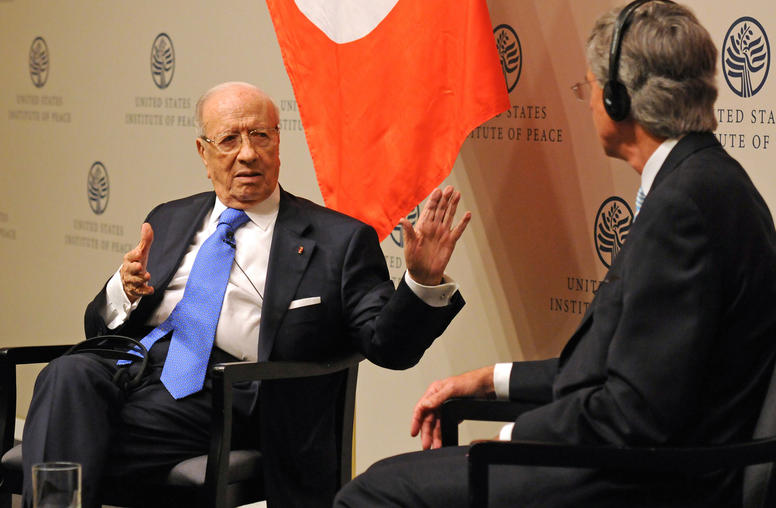
Violent Extremism: Muslim Democrats as Part of Solution
The White House account of President Donald Trump’s first phone call with Tunisian President Beji Caid Essebsi is a good sign that the U.S. might continue to work cooperatively with moderate Muslim political leaders who can contribute to global stability and aid in reducing violent extremism.
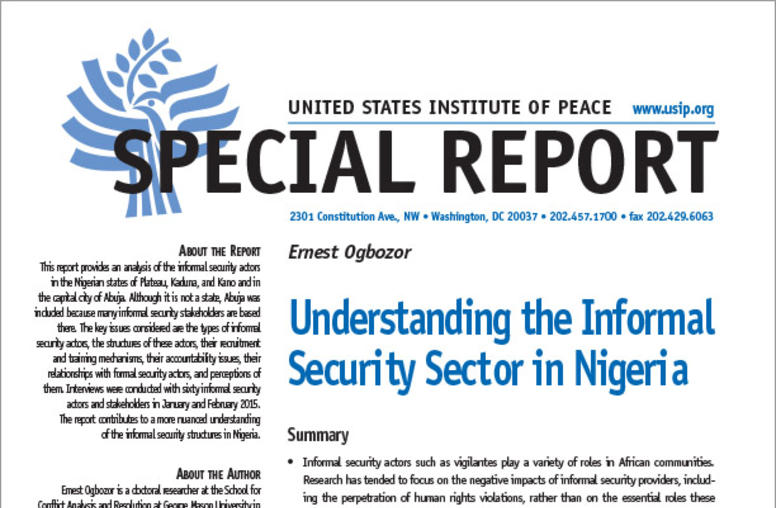
Understanding the Informal Security Sector in Nigeria
Informal security actors such as vigilantes play a variety of roles in African communities. Research has tended to focus on the negative impact of informal security providers, but these groups have an essential role in a community’s safety and security. This report provides an analysis of the informal security actors in the Nigerian states of Plateau, Kaduna, and Kano and in the capital city of Abuja.
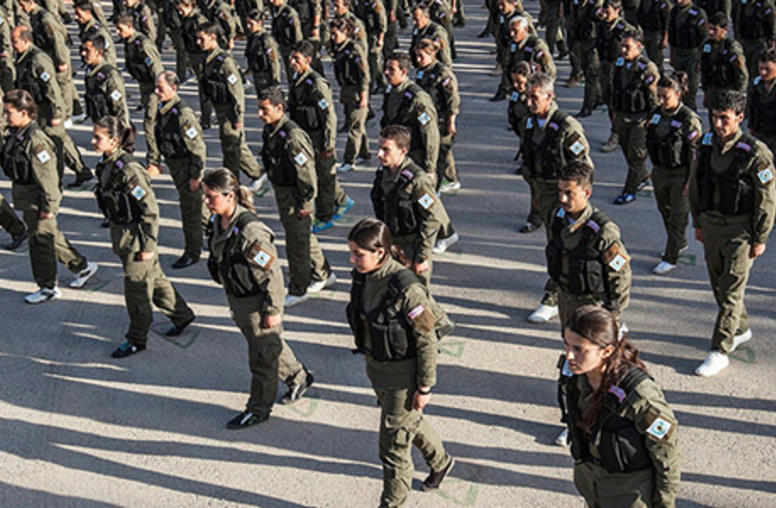
Middle East Security Suffers for Absence of Women
In the violent conflict tearing across the Middle East and North Africa, fully half of the pieces needed to complete the security puzzle may be missing almost entirely: women. As extremist groups and military forces parry with the weapons of war and politics, the pivotal role that women could play in restoring peace and security has largely been cast aside, as old-school thinking perpetuates the idea that gender equality is a problem for another day, according to experts and a new study just published by USIP.
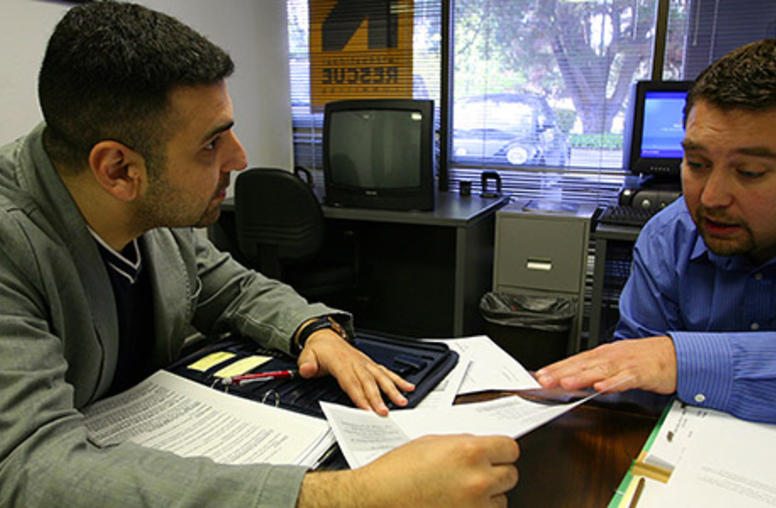
Panel Urges New View of Middle East Refugees
The refugee crisis that has spread to Europe and the breakdown of the Middle East’s century-old political order demand new thinking about the economic role of displaced people and a reassessment of donor strategies to rebuild societies in conflict, a working group convened by the U.S. Institute of Peace concluded. The panel’s report, developed under USIP’s Manal Omar and Elie Abouaoun as part of Atlantic Council’s Middle East Strategy Task Force, calls for refugees to be viewed as potential e...
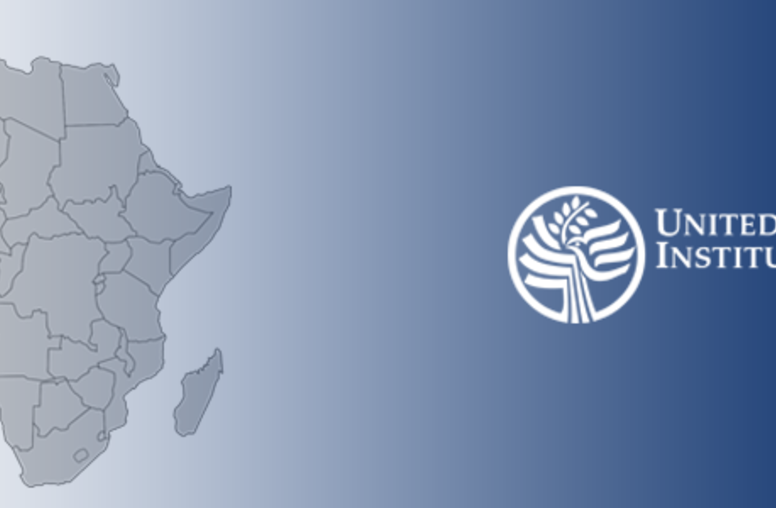
USIP: Summit Resources on Africa
What is Boko Haram and why are youths in Nigeria so drawn to it? What’s happening behind the headlines of war in South Sudan? In Libya? And what IS CVE (Countering Violent Extremism)? The probing research and on-the-ground action of the experts, partners and grantees of the U.S. Institute of Peace can help answer those questions and many more likely to arise during this first-ever U.S.-Africa Leaders Summit in Washington D.C. USIP has worked in Africa for years, and its staff has decades of e...
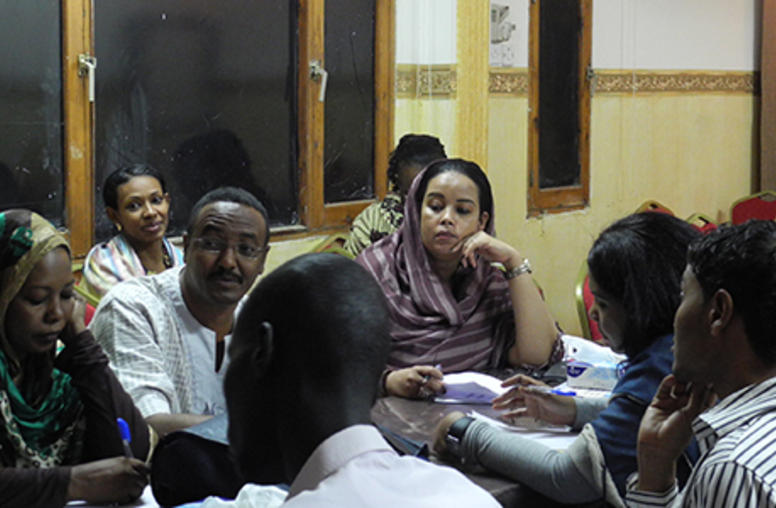
Peace Education in Sudan? Not as Unlikely as it Might Sound
Nothing prepared me for the coffee-black water coming out of the taps. It happened just as a large and delicious breakfast was set out for us in a compound dining room and we were starting to wash our hands in sinks at the side. Sudden, dark, and a bit shocking, the water seemed like a betrayal of all the honest hospitality of our generous hosts. We quickly shifted to washing with bottled water and proceeded without further disruption. Still, the image of that dirty water where clean water had flowed before seemed like a sign that something larger was badly broken.
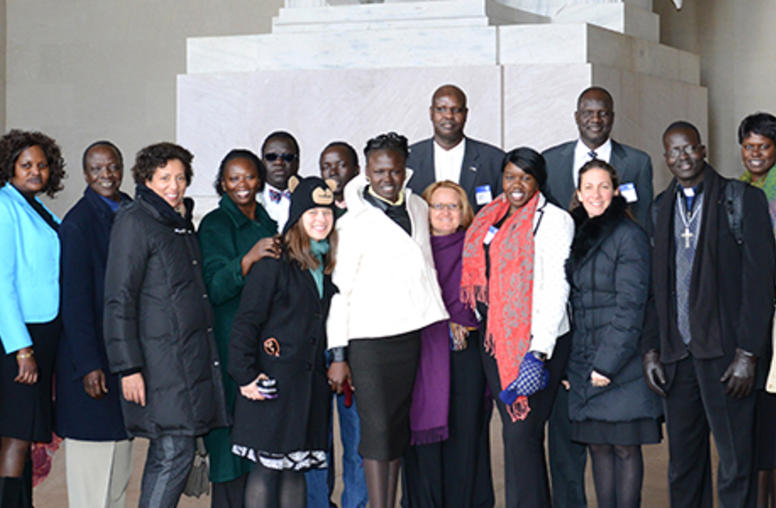
South Sudanese Diaspora Leaders at USIP Consider Online Speech Concerns
Members of the South Sudanese diaspora gathered at the U.S. Institute of Peace (USIP) last week to explore ways of fostering their national unity, supporting peace efforts in a conflict with tribal dimensions and countering online speech that disparages people of other tribes.
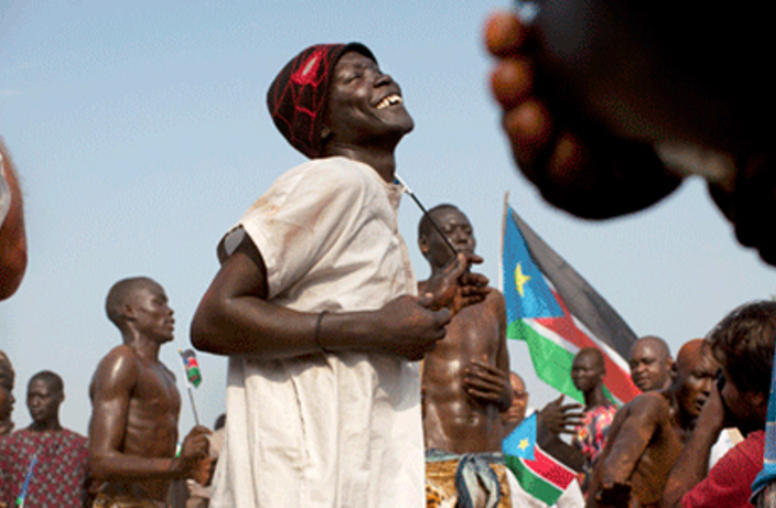
USIP’S Specialists on South Sudan
South Sudan celebrates the first anniversary of its formal independence and nationhood on July 9. Though hopes for progress remain high, the young nation is struggling on several fronts—internal security, relations with Sudan, development, rule of law and statebuilding. The specialists at the U.S. Institute of Peace who work on conflict management and peacebuilding programs in South Sudan examine the gains made and the many challenges ahead.
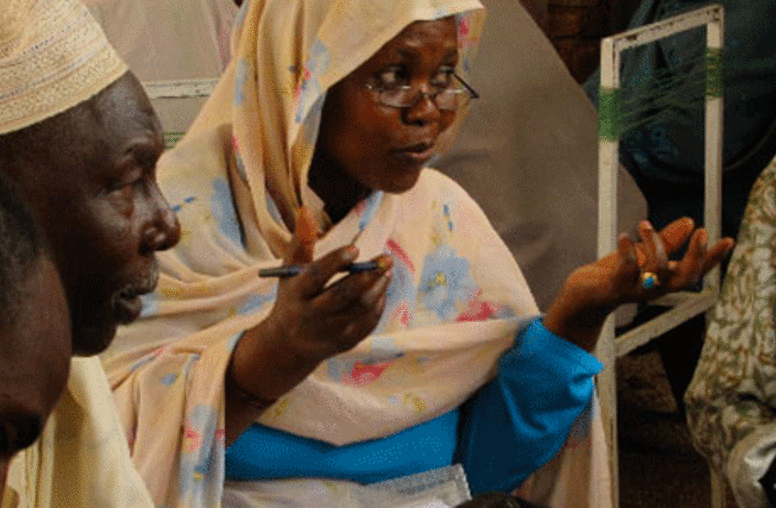
USIP Helping Develop Civil Society with Unique Sudanese Partnership
A close partnership between USIP and a Sudanese organization over the past seven years is strengthening USIP programming in a key African country that has been torn by conflict--and helping to build a vibrant civil society organization where few have prospered previously.
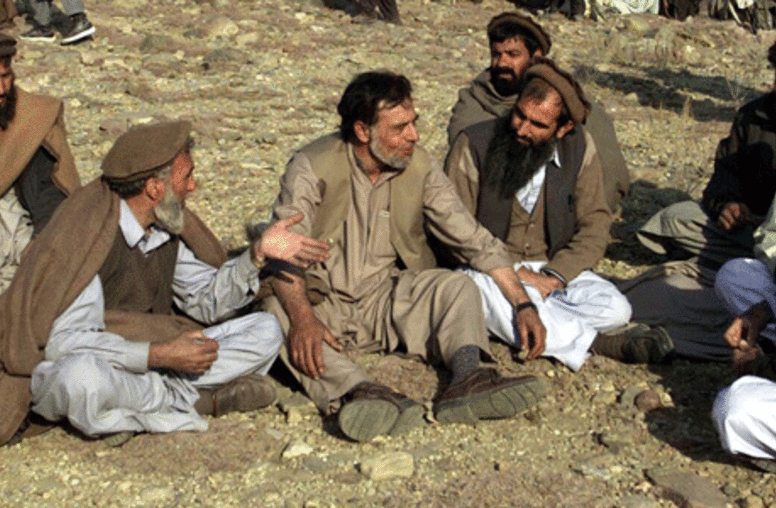
"Honor" Killings Averted: How a USIP-Trained Pakistani Helped Save Lives
USIP has been training Pakistanis from a variety of backgrounds in practical peacebuilding, creating—with the help of a local partner--a network of conflict managers in a strategically vital country plagued by instability. Here is the exclusive story of how a USIP-trained conflict manager helped to avert “honor” killings in a rural Pakistani village.